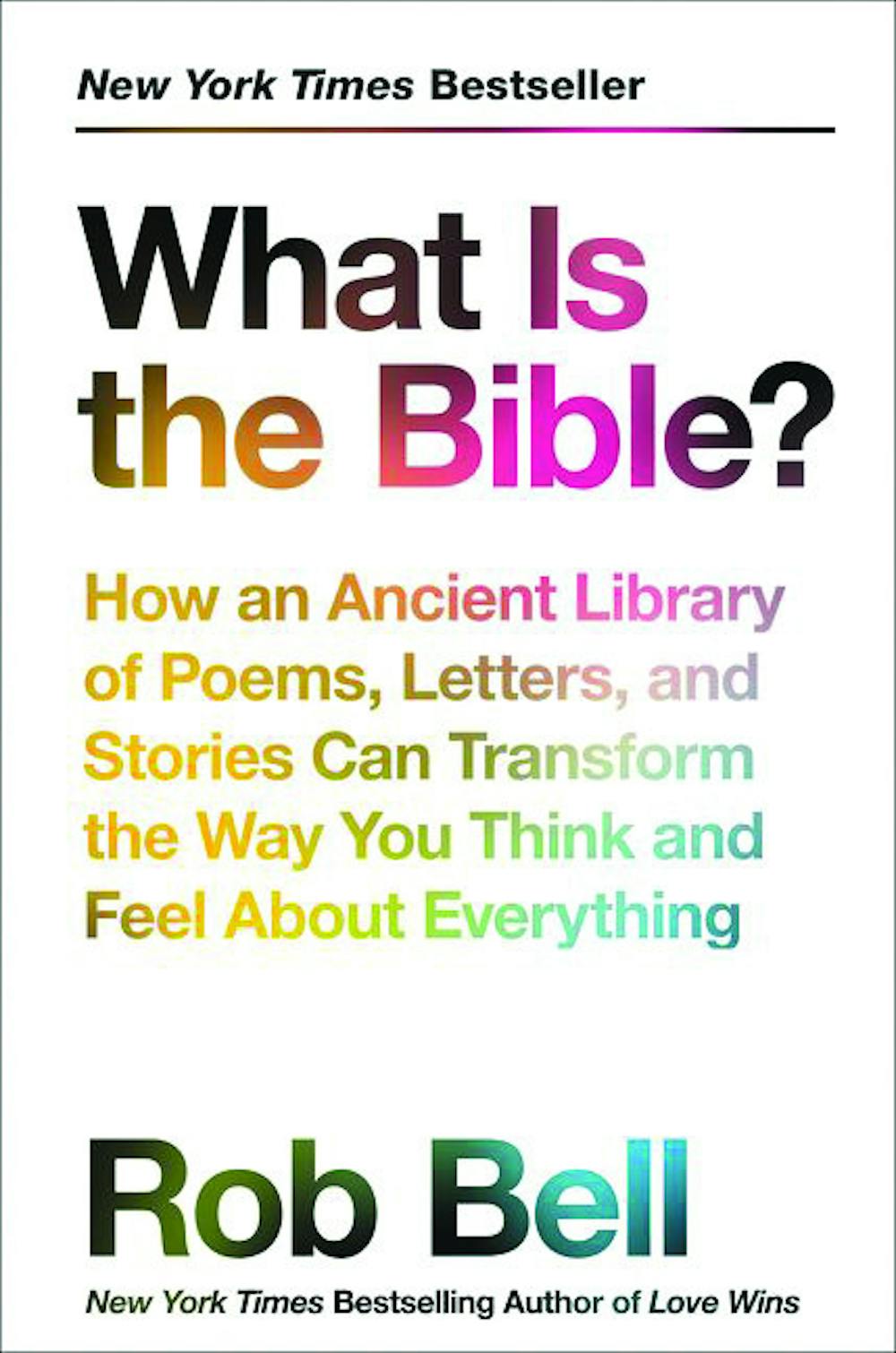https://www.harpercollins.com/9780062194268/what-is-the-bible/, 2017 by Rob Bell
Mediocre. Self-indulgent. Willfully evasive.
I was very excited when I initially paged through this book and eyed the story of “The Good Samaritan.” Do you know it? It tells the story of a man who is robbed, beaten and left for dead. And his perceived “enemy” shows him mercy. The author of this work, “What is the Bible?,” Rob Bell, attempted to provide a greater sociocultural context for the animosity between two biblical, neighboring groups and why their contact and a demonstration of mercy would be so unthinkable in Jesus’ time. I was moved.
So when I saw that the Green Mountain Library Consortium (go/gmlc/) owned the work as an audiobook, I was pretty pleased. The Davis Family Library, by the way, owns the print copy. It was on the recording, read by the author, that I learned that Rob Bell is/was a pastor. Amazon revealed that he is the author of over 10 books. He claimed to have no particular evangelizing mission to forward with this publication, but I remain unconvinced. Overall, I found the work to be a weakly cited collection of his impressions of rather randomly selected passages of the Bible — a broadly popular approach I’ve seen towards engagement with scripture from the pulpit across the United States (all shade intended). Let me be clear: the work is accessible and highly readable. Sometimes it’s interesting as it offers newish deductions from biblical stories. But it’s also wildly unthorough, paltry in its feminism and not infrequently self-indulgent. It’s “cute;” it’s popular; it’s certainly not academic.
I think this is part of the reason I stopped attending church: because the presentation of scripture needed to fit the audience’s tastes and what it wanted to hear. And it held little regard for what needed to be heard in our capitalistic, misogynistic, racist patriarchy. Yes, I said it. The messages in the church needed to coincide with the holidays of the year and the sales at department stores. It needed to be palatable and appetizing even when it wasn’t spiritually nutritious. Rob Bell’s book keeps a passive audience in mind and pushes only to the limit of comfort. In that respect, it’s lazy. Or maybe... I’m just not the right audience.
Here are some things the book asserts that I’m way into and deeply for:
The Bible is an edited text, compiled and recompiled over centuries.
The Bible should be read with a vision for the sociocultural context from which it sprang.
Sometimes the interpreted meaning of biblical stories supersedes their credibility.
The Bible is a library: a compilation of genealogies, laws, oral traditions, letters and more.
Religious mythologies can be inspired and incited by the anxieties — political, agricultural, socioeconomic, et al — of the people writing them.
Cool.
Here’s what I’m not into, that the book suggests:
It is not necessary to provide a timeline for The Bible’s evolution, tracing texts that have been suppressed and excluded or to mention what entities sliced, diced and appended the Bible(s) over time.
Citing sources is an unnecessary and inconvenient hassle in forwarding one’s beliefs.
Being thorough is overrated.
Excluding major and minor characters and significant plot points from biblical narratives are subject to the author’s whims: e.g. Sara, Ruth, Esther, Vashti and other women of the Old Testament are easily ignored.
There’s no point in exploring the incest that appears in the [collection of] book[s].
There’s no point in meaningfully engaging the rich tradition of songs and praise in Psalms.
There’s no point in spending time talking about wisdom literature like Proverbs, Ecclesiastes and Job.
As a white man who has founded a “successful” church, the author automatically has the authority to impose his viewpoints on others.
Bell assumes his readers do not care to engage with actual studies of the Bible but prefer a charismatic white man to parse out small doses and selected spoonfuls. And he’s not wrong! This compilation of thoughts will make this man millions of dollars. He’s a good performer and the Christianity he practices has been very profitable. But for a more balanced and less excessively confident work, see Peter Enns’ “How The Bible Actually Works: In Which I Explain How An Ancient, Ambiguous, and Diverse Book Leads Us to Wisdom Rather Than Answers — and Why That’s Great News.”
The Librarian is in

Comments



